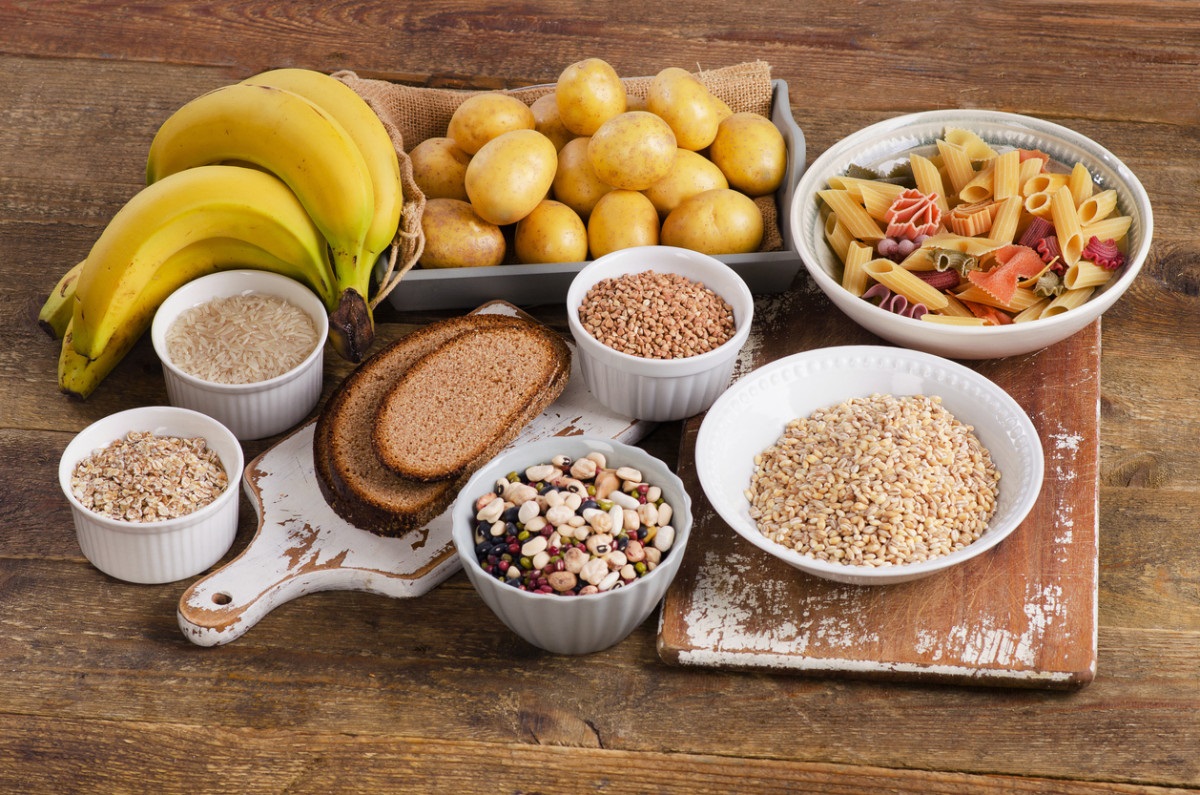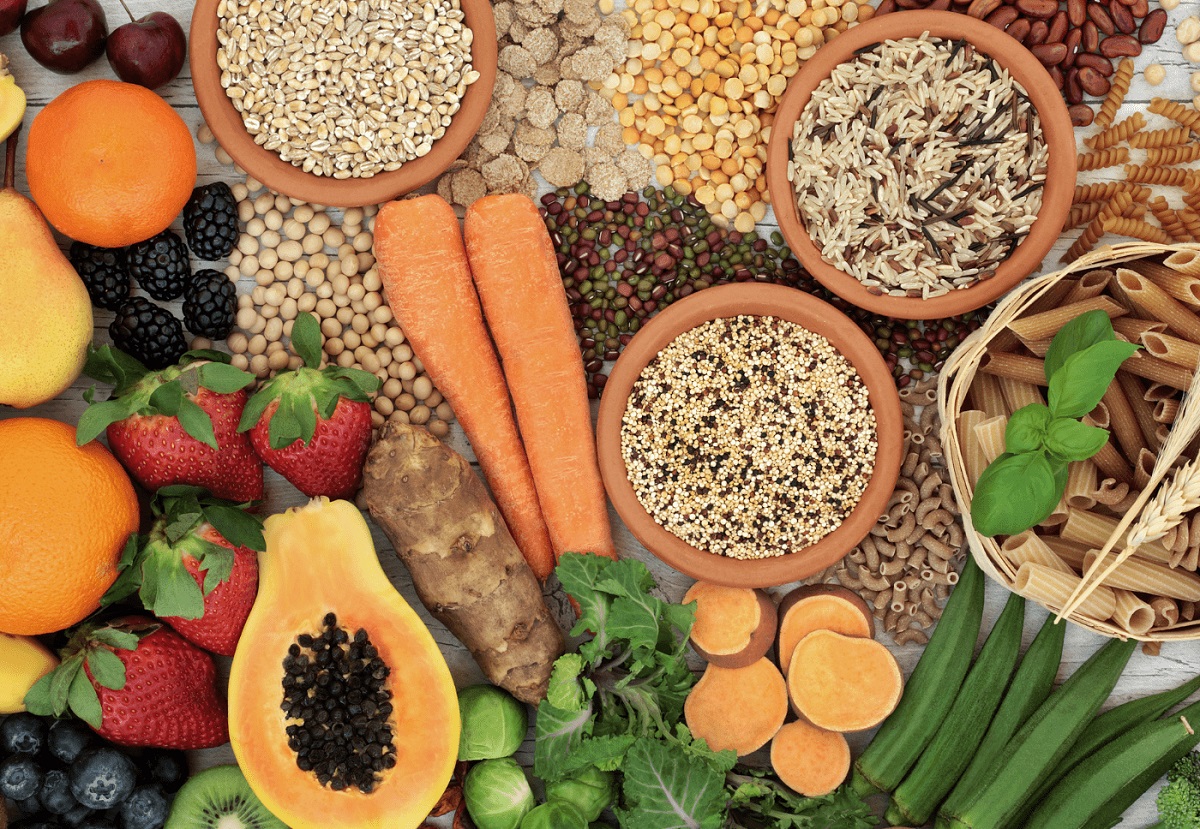How Increasing Fiber Intake May Help Defend Against Harmful Bacteria Like E. coli

Fiber Intake: Diet plays a crucial role in shaping the gut microbiome, which, according to new research, may help inhibit the growth of harmful bacteria.
Fiber And Its Protective Effect On Gut Health

Fiber Intake, Consuming more fiber—found in whole grains, vegetables, and fruits—could provide protection against harmful gut bacteria. A large-scale study analyzing gut microbiome samples from over 12,000 individuals across 45 countries discovered that people with higher levels of a beneficial bacterium called Faecalibacterium tended to have lower amounts of dangerous bacteria, including E. coli. These findings were published in Nature Microbiology.
The Connection Between Fiber And Beneficial Bacteria
Fiber Intake, Researchers observed that individuals with high levels of Faecalibacterium also had increased concentrations of short-chain fatty acids (SCFAs), which are produced when fiber is broken down in the gut. SCFAs are known for their positive effects on digestion and immune function. Conversely, lower levels of Faecalibacterium have been associated with digestive disorders such as inflammatory bowel disease (IBD).
“The key takeaway from our research is that the gut microbiome plays a critical role in suppressing the growth of harmful bacteria, and diet appears to influence this process,” said Dr. Alexandre Almeida, the study’s lead researcher and a fellow at Cambridge University.
Fiber Intake, Since each person’s gut microbiome is unique, the composition of these microbes varies widely. However, this research suggests that consuming fiber-rich foods such as vegetables, beans, and whole grains may foster a healthier balance of gut bacteria.
Understanding The Limitations Of The Study
Fiber Intake, While the study highlights a strong link between fiber intake and reduced levels of harmful bacteria, Almeida cautioned that the research is observational. “Our findings are based on associations rather than direct proof,” he noted. “More long-term studies are needed to determine whether increasing fiber intake can actively prevent infections.”
The research involved analyzing stool samples from 65 studies conducted across 45 countries. By examining gut bacteria from 12,238 individuals, scientists found that a person’s microbiome composition could predict their likelihood of having an overgrowth of harmful bacteria.
Expert Opinions On Fiber’s Role In Health
Dr. Walter Willett, a professor of epidemiology and nutrition at the Harvard T.H. Chan School of Public Health, praised the study but emphasized that it does not definitively prove fiber’s ability to ward off harmful bacteria. “This is just one piece of a larger puzzle,” he said. “Future research must directly analyze the impact of diet.”
Fiber Intake, However, there are already many proven benefits of fiber, including better weight management, lower risk of heart disease, and improved blood sugar control. Adults should aim to consume at least 30 grams of fiber daily, according to Willett.
How To Increase Fiber Intake

Fiber Intake, Most people fail to meet their daily fiber needs, with research from the U.S. Department of Agriculture showing that the average intake is only about 58% of the recommended amount. Willett suggests simple dietary changes to boost fiber consumption:
Choose whole grains over refined grains.
Eat a variety of fiber-rich fruits and vegetables.
Incorporate fiber-dense foods into daily meals.
Here’s a comparison of fiber content in different foods:
Bran cereal (14 g per ½ cup) vs. toasted oat cereal (3 g per cup)
Lima beans (13.2 g per cup) vs. asparagus (2.9 g per cup)
Pumpkin seeds (5.2 g per ounce) vs. hazelnuts (2.8 g per ounce)
Raspberries (8 g per cup) vs. blueberries (3.6 g per cup)
Final Thoughts
Dr. Daniel Freedberg, a gastroenterologist at Columbia University, said to NBC that while this study does not definitively prove fiber increases beneficial bacteria, there is overwhelming evidence that most people consume too little fiber.
“For patients with digestive issues like constipation or diarrhea, fiber is one of the few dietary components that can help with both conditions,” Freedberg explained.
Fiber Intake, Additionally, some studies suggest that diets high in fiber may help maintain colon health. Research has shown that individuals consuming highly processed diets exhibit unfavorable changes in colon tissue compared to those consuming fiber-rich foods.
Though further research is needed, increasing fiber intake remains a simple and effective way to promote better gut health and overall well-being.
Also Read:
Fiber Fights Harmful Gut Bacteria: A Protective Diet For Your Gut Health
New Research: A Short Period Of Vegetarianism Can Benefit Gut Health
Prevent Colon Cancer: Yogurt’s Potential Role In Fighting Aggressive Colon Cancer




